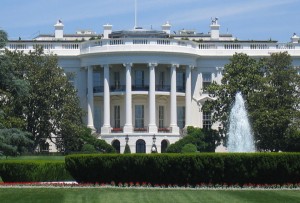President Obama and the ‘Intelligence Brief’ Scandal
 The last few weeks have produced many intriguing political moments, but none as shocking as the revelation that President Obama has been absent from the vast majority of his daily intelligence briefings.
The last few weeks have produced many intriguing political moments, but none as shocking as the revelation that President Obama has been absent from the vast majority of his daily intelligence briefings.
According to a study by the Government Accountability Institute, Obama failed to attend a single Presidential Daily Brief (PDB) in the week leading up to the recent anniversary of 9/11 and the chaos that erupted in the Arab world. The mere fact that we were approaching 9/11 was a crucial enough reason to attend not one but all the briefings. President Obama attended none.
Worse, this is apparently nothing new. Obama attended only 43.8 percent of his Daily Briefs in the first 1,225 days of his administration. For this year, he attended a little over a third.
This is stunning, and there’s no excuse for it.
Washington Post columnist, Marc Thiessen, who worked for President George W. Bush, pressed NSC spokesman Tommy Vietor for an explanation. Thiessen reported:
Vietor did not dispute the numbers, but said the fact that the president, during a time of war, does not attend his daily intelligence meeting on a daily basis is “not particularly interesting or useful.” He says that the president reads his PDB every day, and he disagreed with the suggestion that there is any difference whatsoever between simply reading the briefing book and having an interactive discussion of its contents with top national security and intelligence officials where the president can probe assumptions and ask questions. “I actually don’t agree at all,” Vietor told me in an e-mail. “The president gets the information he needs from the intelligence community each day.”
That’s simply the White House covering for the president.
Similarly, White House spokesman Jay Carney dismissed the PDB charge as “hilarious.” No, no, said Carney, the president “gets it every day.” By “it,” Carney was apparently talking about the intelligence briefing papers, not the actual meetings.
Pro-Obama journalists happily accepted Carney’s explanation. CNN posted Carney’s comments under a photo of a pensive Obama sitting at an intelligence briefing.
Sorry, but, once again, there’s no excuse for this, especially in the post-9/11 world. George W. Bush not only didn’t miss the PDB but actually expanded it to six meetings per week.
Consider, too, the case of Ronald Reagan, who liberals, ironically, portrayed as an uninformed idiot who didn’t pay attention in meetings or read anything.
Reagan, in fact, attended the daily intelligence briefing. I could lay this out at length, but here I’ll offer just two Reagan sources, both still living, who can speak to this:
One source is Herb Meyer, special assistant to CIA director Bill Casey in the 1980s. Meyer told me: “Of course Reagan attended all those daily briefings. And after the briefers returned to CIA headquarters, Bill [Casey] would meet with them just to be sure the president (and Haig & Weinberger) got answers to whatever questions they may have had. In short, it was a very—very—serious business.”
Another source is Bill Clark. Clark was Ronald Reagan’s right-hand man in foreign policy. As his biographer, I know Clark well. He is 80 years old and lives in California. Clark told me this about Reagan and the PDB:
Bill Casey would, by courier, send the President’s Daily Brief each morning at about 5:00 a.m. to our war room downstairs in our [National] Security Council…. It would be delivered to the president in his residence before he came over [by 7:00 a.m.]…. He’d write questions all over the margins about things that weren’t clear in the briefing. And, of course, the agency [CIA] would come down with further explanations.
Clark recalls how Reagan craved that regular morning update. He would read it and then they would meet. Reagan ate up these briefings. He asked questions of his advisers. He probed for ideas. Reagan attended the briefings and used them as presidents should.
When Reagan finished his presidency, after two terms, genuine freedom and democracy were surging all over the communist world.
As for President Obama, if he’s in the process of finishing his presidency, after one term, he’s facing a surge of radical Islamic fundamentalism in the Middle East. Can any of that be blamed on Obama’s failure to attend these routine briefings? Maybe, maybe not, but it certainly can’t help.
In fact, as Marc Theissen and the Government Accountability Institute have noted in follow-up stories, Obama is now suddenly attending his daily briefing. That’s no doubt a response to political criticism. But could it be—on the heels of the eruptions in Libya and Egypt, which Obama initially blamed not on pre-meditated terrorism but a video—that maybe President Obama feels like he might have been missing something?

